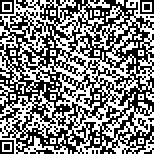| 摘要: |
| 为了综合评价经济海藻羊栖菜(Sargassum fusiforme)受精卵的营养价值及开发利用前景,本文检测了羊栖菜受精卵碳水化合物、膳食纤维、氨基酸、脂肪酸等生物活性物质与矿质元素成分,并与文献报道的孢子体相应成分进行了比较。结果发现:羊栖菜受精卵富含碳水化合物、蛋白质、氨基酸及膳食纤维,其含量分别为(20.4±0.07)、(22.7±0.03)、(16.7±0.04)和(39.2±0.03)g/100g DW;谷氨酸、维生素E和β-类胡萝卜素含量尤其高,分别达到(9.82±0.05)g/100g DW、(11.8±0.01)mg/100g DW和(3.0×103±7.07)μg/100g DW;而脂肪含量偏低,只有1.03%。矿质元素中微量元素铁、钙和镁的含量较高,分别为(4.54×103±49.50)、(1.83×103±7.78)和(1.40×103±28.28)mg/100g DW。通过与文献报道的羊栖菜孢子体生化成分相比较,羊栖菜受精卵中蛋白质、氨基酸、β-类胡萝卜素、钾、钠、磷、铁、钙、锌、锰及铜元素的含量均高于羊栖菜孢子体。说明羊栖菜受精卵具有更高的天然产物提取、开发和利用价值。 |
| 关键词: 羊栖菜 受精卵 孢子体 生物活性物质 矿质元素 |
| DOI:10.11693/hyhz20181000259 |
| 分类号:Q946;S968.4 |
| 基金项目:国家重点研发计划“蓝色粮仓科技创新”重点专项项目,2018YFD0901500号;国家自然科学基金项目,41876124号,41706147号;浙江省水环境与海洋生物资源保护重点实验室开放基金项目,ZK2015-01号;温州市洞头区重大渔农业科技项目,N2018Y03A号。 |
附件 |
|
| ANALYSIS OF BIOACTIVE SUBSTANCES AND MINERAL ELEMENTS IN FERTILIZED EGGS OF ECONOMIC SEAWEED SARGASSUM FUSIFORME |
|
LIN Li-Dong1, SHANG Tian-Ge2, CHEN Bin-Bin2, ZHANG Xu2, MA Zeng-Ling2
|
|
1.Post-Doctor Workstation of Dongtou Fisheries Science and Technology Research Institute, Dongtou, Wenzhou 325700, China;2.Zhejiang Provincial Key Laboratory for Water Environment and Marine Biological Resources Protection, Wenzhou University, Wenzhou 325035, China
|
| Abstract: |
| To comprehensively evaluate the nutritional values and development prospects of fertilized eggs of Sargassum fusiforme, the mineral elements, bioactive substances such as carbohydrates, dietary fibers, amino acids and fatty acids in the fertilized eggs were determined and compared with the corresponding components in the sporophytes based on literatures. The results showed that the fertilized eggs of S. fusiforme were rich in carbohydrates, proteins, amino acids and dietary fibers, and the corresponding contents were (20.4±0.07), (22.7±0.03), (16.7±0.04) and (39.2±0.03)g/100g DW, respectively. In addition, the contents of glutamic acid, vitamin E and β-carotene were particularly high, reaching (9.82±0.05)g/100g DW, (11.8±0.01)mg/100g DW and (3.0×103±7.07)μg/100g DW, respectively. However, the content of fat was low, only 1.03%. For the mineral elements, the contents of trace elements iron, calcium and magnesium were high, reaching (4.54×103±49.50), (1.83×103±7.78) and (1.40×103±28.28)mg/100g DW, respectively. In conclusion, compared with the biochemical components in sporophytes of S. fusiformis reported in the literatures, the fertilized eggs contain higher contents of proteins, amino acids, β-carotene, potassium, sodium, phosphorus, iron, calcium, zinc, manganese and copper. It indicates that the fertilized eggs of S. fusiforme is better than the sporophytes in extraction, development and utilization of the natural products. |
| Key words: Sargassum fusiforme fertilized eggs sporophyte bioactive substances mineral elements |
